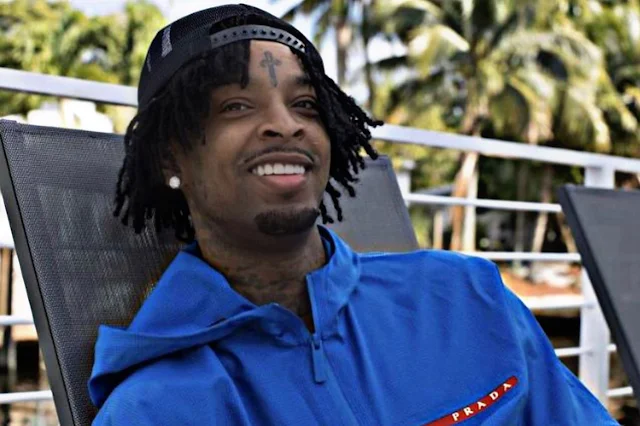21 Savage Has Followed Fat Joe In Admitting That Most Of His Lyrics Are Not Real
In the wake of debates about the use of rap lyrics in court cases, 21 Savage is taking a hint from Fat Joe by declaring a significant portion of his song content as fiction. In a recent interview with Rolling Stone, the "A Lot" rapper asserted that his music is "fiction as hell," explaining that while some elements are inspired by real life, a substantial part is woven from creative stories.
These statements echo Fat Joe's recent admission to 21 Savage that he lied in "95 percent" of his raps, a revelation made in defense of Young Thug, whose lyrics are under scrutiny in a current RICO trial. Fat Joe, with a career spanning 30 years, emphasized that he writes based on his feelings at the moment, expressing creativity rather than factual accuracy.
In a candid interview with Gayle King, Fat Joe highlighted the disparity between his artistic persona and his real-life identity as Joseph Cartagena, a family man actively contributing to his community. He lamented the exploitation of creative lyrics by district attorneys, acknowledging that they often recognize the fictional nature but exploit it for legal advantage.
21 Savage's acknowledgment of embellishing in his songs isn't a novel revelation. Last August, the Atlanta-based rapper took to Twitter to address gun violence in his community, urging improvement and putting down firearms.
This ongoing discourse raises critical questions about the intersection of art and legal proceedings. As both 21 Savage and Fat Joe peel back the layers of their creative process, it sparks a broader conversation about the potential consequences of using fictionalized lyrics in a legal context.
- Related Content: 21 Savage Calls Cap On Kodak Black's Claim of Switching Up On Him After 'Her Loss' Track with Drake
Beyond the individual revelations, this issue has broader implications, particularly for artists who find their creative expressions scrutinized in legal battles. The blurred line between artistic license and legal implications prompts reflection on the role of lyrics in the justice system.
This conversation isn't merely about individual artists' admissions but delves into the larger complexities surrounding artistic freedom, the interpretation of lyrics, and the potential impact on legal proceedings. As the dialogue unfolds, it underscores the need for a nuanced understanding of the delicate balance between creativity and its unintended consequences within the realm of the law.

